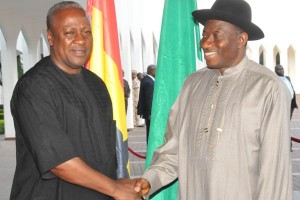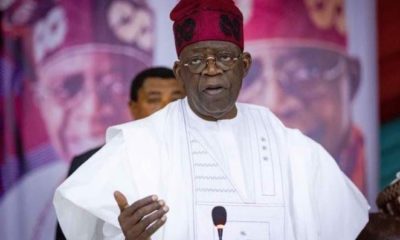Oil
Nigeria, sub-Saharan Africa, account for 30% global oil discoveries
LAGOS-Almost 30 percent of global oil and gas discoveries made over the last five years were in sub-Saharan Africa, reflecting growing global appetite for African resources, the World Energy Outlook Special Report said.
The report, recently released, also said that Nigeria is the richest resource centre of the oil sector, but regulatory uncertainty, militant activity and oil theft in the Niger Delta are deterring investment and production. Consequently, Angola is set to overtake Nigeria as the region’s largest producer of crude oil until the early 2020s.
It noted that the value of the estimated 150,000 barrels lost to oil theft each day – amounting to more than $5 billion per year, would be sufficient to fund universal access to electricity for all Nigerians by 2030. According to the report, a host of smaller producers such as South Sudan, Niger, Ghana, Uganda, and Kenya, see rising output; but, by the late 2020s, production in most countries with the exception of Nigeria, is in decline. Additions and upgrades to refining capacity mean that more of the region’s crude supply is processed locally.
With regional production falling back from above 6 million barrels per day (mb/d) in 2020 to 5.3 mb/d in 2040, but demand for oil products doubling to 4mb/d, an upward trend amplified in some countries by subsidised prices. The result is to squeeze the region’s net contribution to the global oil balance.
The report also explained that natural gas resource-holders can power domestic economic development and boost export revenues, but only if the right regulation, prices and infrastructure are in place.
It noted that the incentives to use gas within sub-Saharan Africa are expected to grow as power sector reforms and gas infrastructure projects move ahead. But for the moment as much gas is flared as is consumed within the region. According to the report, more than 1trillion cubic metres of gas have been wasted through flaring over the years, a volume that if used to provide power would be enough to meet current sub-Saharan electricity needs for more than a decade.
Specifically, Nigeria remains the region’s largest gas consumer and producer, but the focus for new gas projects also shifts to the east coast and to the huge offshore discoveries in Mozambique and Tanzania. The size of these developments and remoteness of their location raises questions about how quickly production can begin.
But they provide a 75 billion cubic metre (bcm) boost to annual regional output, which reaches 230bcm in total by 2040, with projects in Mozambique larger in scale and earlier in realisation.
East coast LNG export is helped by relative proximity to the importing markets of Asia. But alongside the benefits from an estimated $150 billion in fiscal revenue to 2040, both countries are determined to promote domestic markets for gas, which will need to be built from a very low base.
As regards energy, the report stated that since 2000, sub-Saharan Africa has seen rapid economic growth and energy use has risen by 45 percent. It said many governments are now intensifying their efforts to tackle the numerous regulatory and political barriers that are holding back investment in domestic energy supply.
But inadequate energy infrastructure risks putting a brake on urgently needed improvements in living standards. A severe shortage of essential electricity infrastructure is said to be undermining efforts to achieve more rapid social and economic development. For the minority that has a grid connection today, supply is often unreliable, necessitating widespread and costly private use of back-up generators running on diesel or gasoline.
Electricity tariffs are, in many cases, among the highest in the world and, outside South Africa, losses in poorly maintained transmission and distribution networks are double the world average. The Report further said that reform programmes are starting to improve efficiency and to bring in new capital.
This includes those from private investors, and grid-based generation capacity quadruples in our main scenario to 2040, albeit from a very low base of 90GW today (half of which is in South Africa). Urban areas experience the largest improvement in the coverage and reliability of centralised electricity supply, the report said.
Vanguard-
Oil
NNPC Targets 60% Methane Emission Reduction By 2031
The Nigerian National Petroleum Company Limited (NNPC) has unveiled a bold strategy to reduce methane emissions in the oil and gas sector by 60% by 2031, with an ultimate goal of achieving net-zero emissions by 2060.
This announcement reinforces Nigeria’s leadership role under the Global Methane Pledge initiative and its commitment to tackling climate change.
The Group Chief Executive Officer of NNPC, Mele Kyari, disclosed these plans during a meeting on Thursday with Robert Leahman, the U.S. State Department’s Global Methane Program Manager, and a delegation from Deloitte.
READ MORE: Atiku Gloats Over AUN’s Achievements Ahead Of 20th Anniversary
The discussions, held at the NNPC Towers in Abuja, focused on collaborative efforts to reduce methane emissions through innovative and sustainable practices.
“Reducing methane emissions is not just an environmental necessity but also a strategic imperative for Nigeria’s energy transition. We are leveraging partnerships to adopt global best practices and innovative solutions,” Kyari stated.
Key among these efforts is a pilot project in the Niger Delta, aimed at establishing emissions baselines, mitigating methane leaks, and promoting sustainable operations across Nigeria’s energy sector.
The project, a partnership between NNPC, Deloitte, and the U.S. Bureau of Energy Resources, will utilize data-driven methodologies to pinpoint and address methane hotspots.
Robert Leahman commended Nigeria’s proactive stance, describing it as a benchmark for other nations on the continent.
“Nigeria’s leadership under the Global Methane Pledge sets a standard for the continent. These initiatives will not only help reduce emissions but also drive sustainable development in the energy sector,” he said.
Kyari highlighted the broader benefits of addressing methane emissions, noting its significance for both environmental protection and economic efficiency.
“This collaboration is a game-changer. By addressing methane leaks, we’re reducing waste, saving costs, and protecting the environment. It’s a win-win for our economy and the planet,” he added.
Oil
FG Introduces New Incentives To Revitalize Nigeria’s Oil & Gas Industry
In a strategic move to revitalize Nigeria’s oil and gas sector, the Federal Government has unveiled two key fiscal incentives aimed at attracting investment and enhancing energy security.
The announcement was made by Mr. Wale Edun, the Minister of Finance and Coordinating Minister of the Economy on Wednesday.
The first initiative, the Value Added Tax (VAT) Modification Order 2024, introduces critical exemptions for essential energy products and infrastructure, including Diesel, Feed Gas, Liquefied Petroleum Gas (LPG), Compressed Natural Gas (CNG), Electric Vehicles, Liquefied Natural Gas (LNG) infrastructure, and Clean Cooking Equipment.
Read Also: Atiku Calls For Rotational Presidency Across Nigeria’s Geopolitical Zones
These exemptions are designed to reduce living costs for Nigerians, promote energy security, and accelerate the transition to cleaner energy alternatives.
The second initiative, the Notice of Tax Incentives for Deep Offshore Oil & Gas Production, offers new tax relief options for deep offshore exploration projects.
This measure aims to position Nigeria’s deep offshore basin as a premier destination for international oil and gas investments, boosting the country’s appeal to foreign investors.
These reforms are part of a broader set of policy initiatives, known as Policy Directives 40-42, endorsed by President Bola Ahmed Tinubu.
The directives reflect the administration’s commitment to fostering sustainable development in the energy sector and enhancing Nigeria’s competitive edge in the global oil and gas market.
Business
Tinubu set to approve ExxonMobil-Seplat oil deal, expands CNG bus initiative

By Yemie Adeoye
NIGERIA’s President Bola Tinubu has announced that the protracted ExxonMobil-Seplat upstream oil divestment will be formally approved by the Minister of petroleum within a matter of days, just as he announced his government’s intention to expand the Compress natural Gas, CNG buses initiative.
The President who stated this during his Independence day nationwide broadcast stated that the move is in line with his administration’s commitment to free enterprise, free entry and free exit in investments which is the hallmark of his administration investment policy.
“Fellow compatriots, our administration is committed to free enterprise, free entry, and free exit in investments while maintaining the sanctity and efficacy of our regulatory processes. This principle guides the divestment transactions in our upstream petroleum sector, where we are committed to changing the fortune positively. As such, the ExxonMobil Seplat divestment will receive ministerial approval in a matter of days, having been concluded by the regulator, NUPRC, in line with the Petroleum Industry Act, PIA. This was done in the same manner as other qualified divestments approved in the sector.”
The President also seized the opportunity to plead with Nigerians to be patient with his administration’s reform policies. “As your President, I assure you that we are committed to finding sustainable solutions to alleviate the suffering of our citizens. Once again, I plead for your patience as the reforms we are implementing show positive signs, and we are beginning to see light at the end of the tunnel”.
“Our energy transition programme is on course. We are expanding the adoption of the Presidential Initiative on Compressed Natural Gas for mass transit with private sector players. The Federal Government is ready to assist the thirty-six States and FCT in acquiring CNG buses for cheaper public transportation.
Fellow Nigerians, while we are working to stabilise the economy and secure the country, we also seek to foster national unity and build social harmony and cohesion. Our economy can only thrive when there is peace”. he enthused.





















